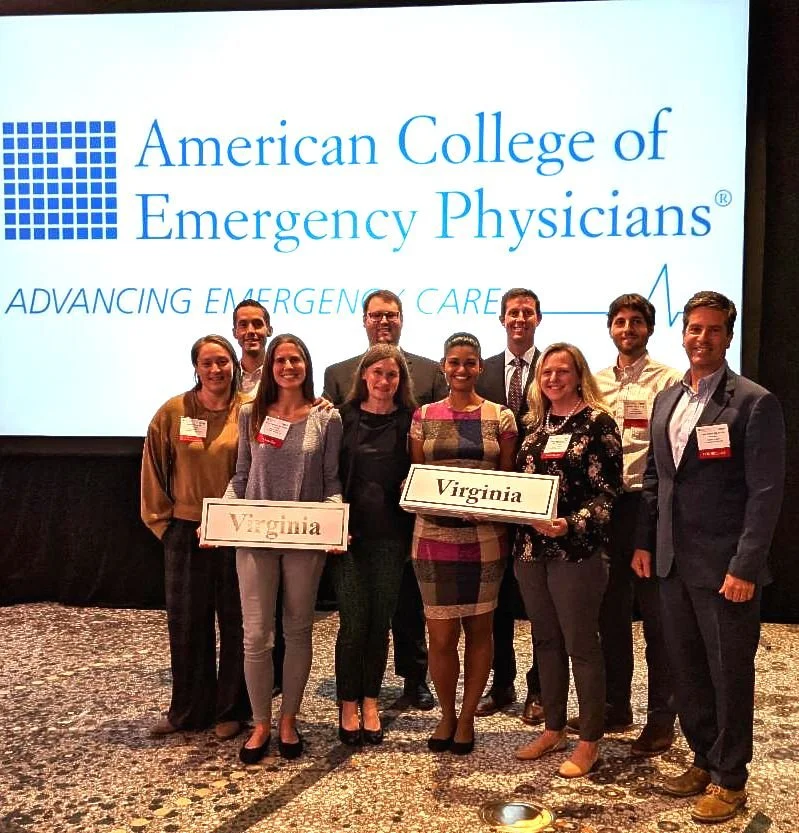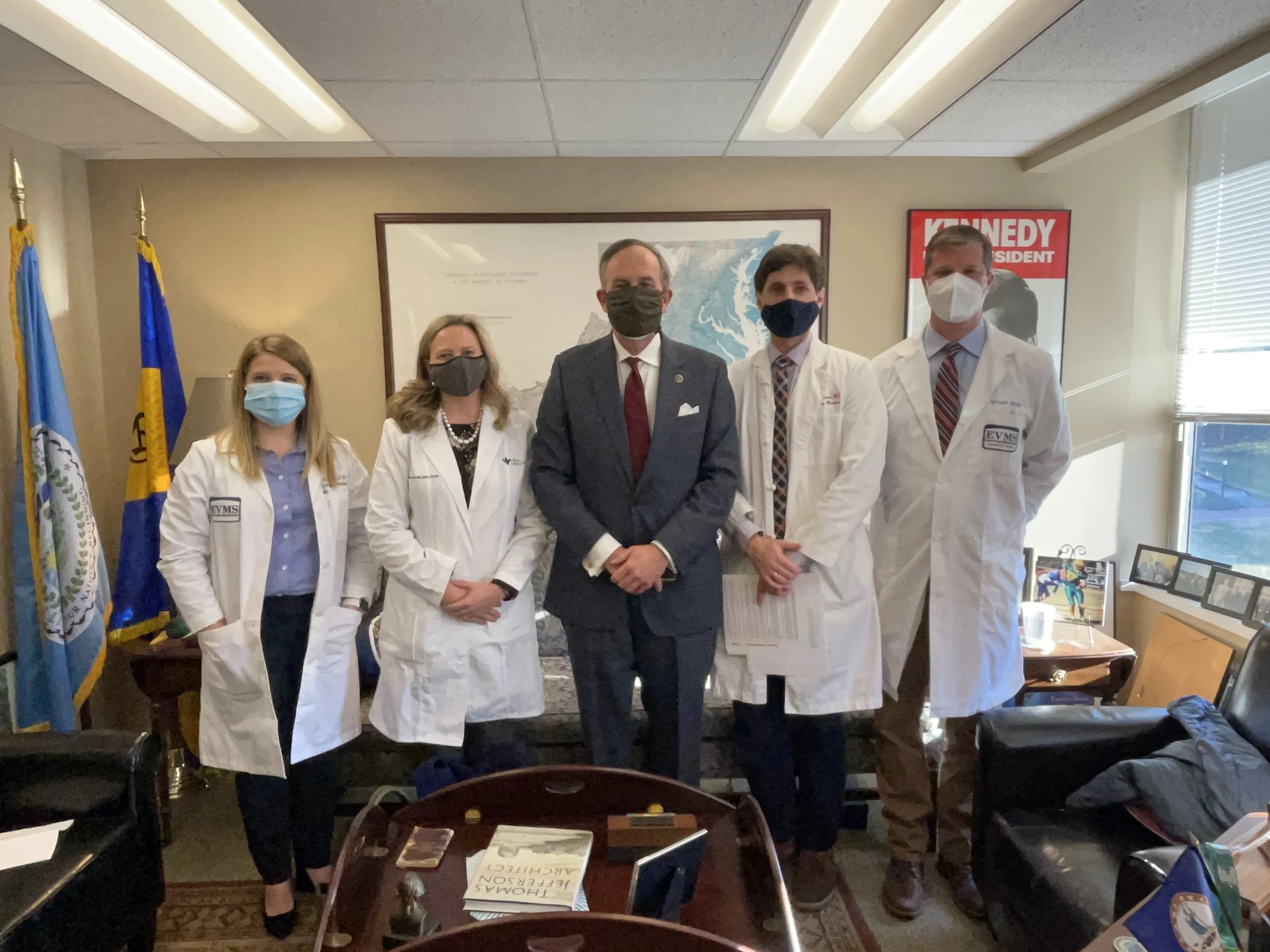Since 1970, advocates for the Emergency Medicine specialty.
Updates on Virginia CME Requirements
As of July 1, you are no longer required by the Virginia Board of Medicine to take 2 hours of opioid CME each year. That surprised us, so we wanted to make sure our fellow Virginia EPs are up-to-date. Here’s our current CME requirements (as of September 2022).
September ACEP/VACEP Member Benefits Highlight: Contract Reviews
As an emergency physician member of VACEP, you have access to a number of benefits as an added value. Each month, we’re bringing you offerings around a particular topic of interest. This month’s benefit: Contract Reviews.
VACEP's EBM Series: Tranexamic Acid to Reduce Nasal Packing in Epistaxis?
We read it so you don’t have to: Is tranexamic acid (TXA) helpful for epistaxis, and can it reduce nasal packing in epistaxis?
VACEP's EBM Series: Low-Risk Criteria to Evaluate Fever in Infants
Our newest Evidence-Based Medicine for General Emergency Physicians article looks at the case of a 26 day old female who presents to your emergency department with a fever to 100.8°F. She is well appearing, asymptomatic, and has an unremarkable medical history. What are your next steps in the evaluation of this febrile infant?
Our July Newsletter: eNews 169
Get a roundup on the inner workings of VACEP and catchup on some of the latest EM-related news in Virginia. Have
Ask VACEP: Pharmacists Prescribing Paxlovid
Can pharmacists prescribe Paxlovid for adults and children at risk for severe COVID-19? Yes, with limitations. Learn more about the FDA’s emergency order and the history of Virginia pharmacists prescribing medication and other products to patients.
Coming Saturday, July 16: 988, the National Suicide Prevention Hotline
Starting July 16, 988 will be the new direct, three-digit line to trained National Suicide Prevention Lifeline counselors, opening the door for millions of Americans to seek the help they need. Those who call or text 988 will be connected to trained counselors through the National Suicide Prevention Lifeline's network.
How Emergency Physicians Obtain a Medical Emergency Custody Order (ECO) in Virginia
A legal maneuver available to licensed physicians, Virginia’s ECO process ensures people who need medical care but refuse or are incapable of making the decision to seek it get the attention they require.
The Latest on our Biggest '22 Issues
Downcoding, Scope of Practice, and Fair Pay: Here’s where things stand on the three biggest issues VACEP has tackled in 2022.
ED Violence, Due Process, Medicare Cuts: Lobbying on the big three issues in D.C.
At this week’s Leadership & Advocacy Conference in Washington, VACEP members pushed three key measures with members of Congress. Learn more about each issue, and grab a free downloadable one-pager that will educate you on each topic.
New Report on Kids and Mental Health in Virginia
In a new report from the Virginia Department of Health, Self-Harm and Suicide Among Virginia Youth Aged 9-18 Years, 2015-2021, researchers examined self-harm and suicide among youth aged 9-18 years in Virginia using data from 2016-2021 for emergency department (ED) visits, 2016-2020 for nonfatal inpatient hospitalizations, and 2015-2021 for deaths by suicide.
Darwin Castillo talks VACEP Leadership & Advocacy Fellowship
Darwin Castillo, MD, MBA, FACEP shares his unique experiences and insights on the L&A Fellowship. He joined the fellowship after witnessing the COVID-19 pandemic further reveal the many difficulties emergency physicians face, and the urgent need for change throughout the healthcare system.
Leadership & Advocacy Profile: TJ Tzavaras, MD
Meet VACEP fellow TJ Tzavaras, who is wrapping up his fellowship with four others. “The issues VACEP advocates for are not esoteric. They shape the patients we see, the resources they have, and the compensation we are afforded.”
An Update on State and Federal Fair Payments
Pushing for fair payment is far and away the top advocacy issue on VACEP’s agenda at any given time. Today, we have a few good updates to share — and on several issues that appeared to be a lost cause even as recently as a few weeks ago.
A team effort successfully amended a bill that Nurse Practitioners are backing to decrease the number of years of clinical experience required, from five years to two, for their independent practice. Those NPs who received a license during the pandemic (when the requirement was lowered to two years to address emergency needs) are allowed to keep their status under this new substitute bill.
eNews 164: A Winning Week
It was a big month for VACEP and we made progress on both state and national fronts. Read more in our giant February newsletter.
VACEP, allies, secure win on arbitration guidelines in federal No Surprises Act
This week, VACEP and our allies secured a major win when a federal judge in Texas ruled in our favor regarding the process for resolving reimbursement disputes between insurers and physicians. The decision puts emergency medicine one step closer to ensuring a fair arbitration process as part of the federal No Surprises Act.
As Virginia hits "Crossover," EP leaders give legislative update
At the halfway point of the Virginia General Assembly, five members of VACEP’s Board of Directors provided an update to fellow emergency physicians across Virginia on the status of key legislation that the group is supporting, opposing, or simply monitoring.
Optimistic ACEP President Schmitz addresses Virginia emergency docs, covers four “challenges and opportunities” in EM
“I’m asking you to come at this with a sense of optimism that we’re going to be okay,” ACEP President Gillian Schmitz told members of the Virginia College of Emergency Physicians. “I know people are stressed right now, I know there's a high level of anxiety about multiple different factors impacting our practice, but it's going to be okay, and we’re making some significant headway.”


















